

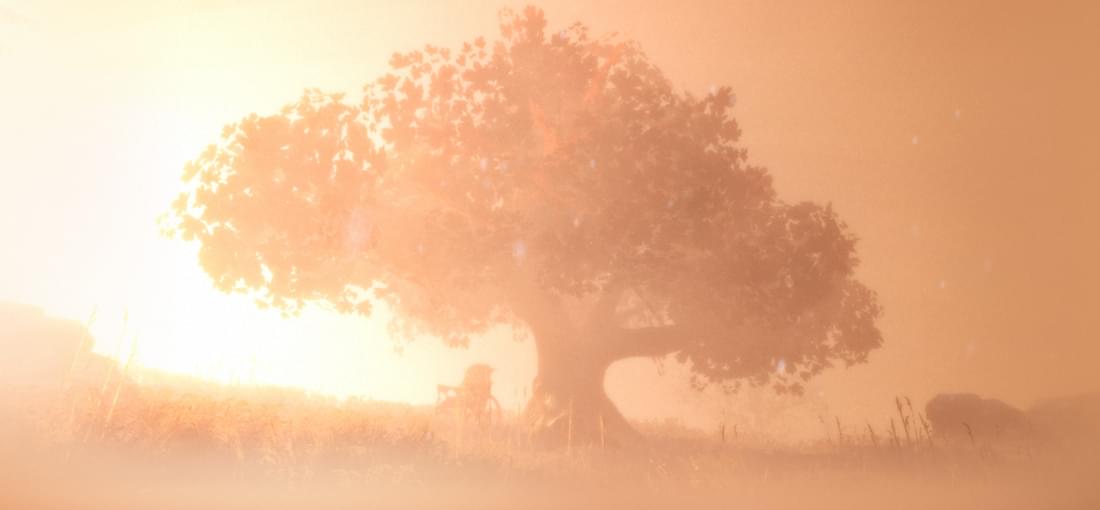
"Take a walk with me. I'll show you the fragments... Your past, your present, your memories... You will forget and remember. You will complete the cycle." In Back Then (2023) you play Thomas Eilian, a late-stage Alzheimer's patient who, nearing death in a nursing home, embarks on an inner journey through his past. This takes the shape of exploring his empty family home, while the voices of family members tell him what they couldn't, or wouldn't, while he was still aware. You're taken to other, more or less abstract and symbolic locations as well, like a labyrinth of empty bookcases or a similarly disorienting WWII trench. This game is clearly a labour of love. It started in 2019 as a game jam submission by a group of university students, so after the jam's 48-hour deadline they stuck with it for four more years. Their drive to raise awareness of the disease seems to be in part biographically informed. Still, this is no Depression Quest, but an artistic game about the ravages of time, the cyclicity of forgetting, and the power of love. I like how the family members are all fully realised characters with their own biographies, worries and regrets. At the metaphysical end, the poetic diction sometimes seems a bit much; still, the game's humanist and ultimately Christian outlook creates a cathartic finale. Gameplay is what you expect from a narrative game: It's linear, doors locking and unlocking on their own to guide you through the house. Tom's wheelchair sets the pace of the exploration. Puzzles involve finding items and taking them somewhere else; the most demanding aspect are the labyrinths, which I feel are overused. The voice acting is good overall (subtitles could use proofreading). The music plays a massive part in setting the emotional scene. While some parts drag a bit, others form a compelling gesamtkunstwerk- the episode with Tom's son Ben stood out to me in particular. If you like slow and serious walking sims, this is worth the 2 hours of your time.
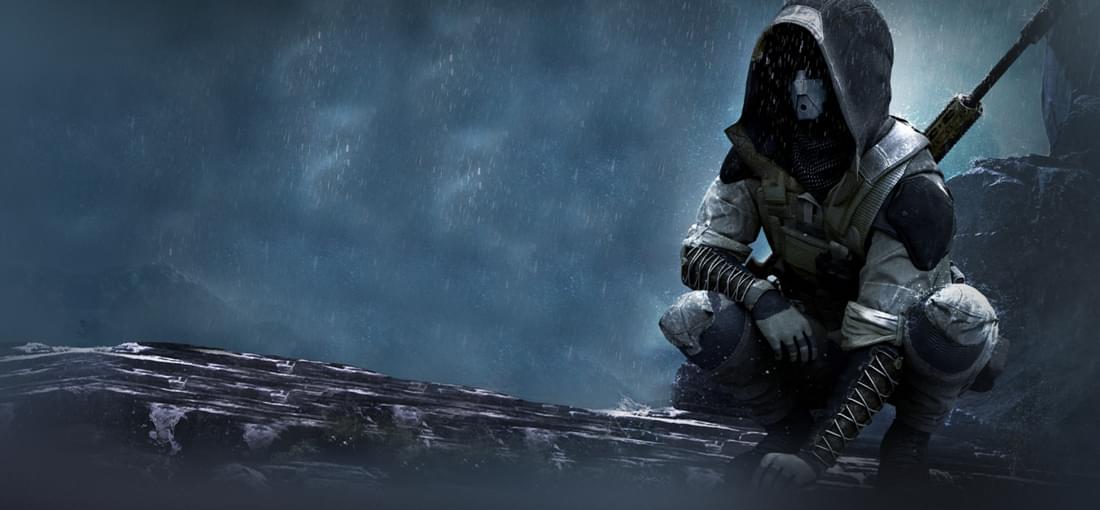
I'll keep it simple: If you liked the first Contracts, you'll probably like this. The main news are the long-shot contracts, where you have to dispose of your targets from a kilometre or more away. Three maps are like that, two others (plus the included DLC) are classic contracts lending themselves to stealth and infiltration. After playing through the campaign once, you'll really get to know the maps and gear through the challenges, which are more numerous this time and again range from "don't kill anyone" to "explode all targets"- it's not Hitman, but some afford a nice sense of accomplishment. You wouldn't think it possible, but this game has even less of a story than the first Contracts. Some evil widow runs some Middle Eastern country (a fictional one this time, thank God); you pick off her underlings and lay waste to her infrastructure, then go after her. You free some journalist and kill him three missions later. Even the story-based collectibles (others are based on real-world Arabic folklore) don't even try to add any depth to it. Also, while you're now called Raven instead of Seeker and have some banter with your handler, you're even less of a person than before. I don't mind it; there's plenty of story-based games out there. Checkpoint saves are nicer than ever before, as the game now keeps several saves for your current contract. Upgrading your mask (augmented reality view similar to Scout Sense in the earlier SGWs), weapons and other gear is the same mixed bag as ever, ranging from essential tools to stuff you just buy for one challenge. I feel the drone has become a little more useful again thanks to anti-drone towers being nerfed, but it's still far from the fun go-to gadget it was in SGW3. 5 stars not because it's so unique and innovative, but because it's exactly what I wanted: more of a good thing. Mellow, focused. Took me 40 hours with most of the challenges, but I'm a slow player. Virtually no bugs. Runs fine under Linux using Wine/Lutris.
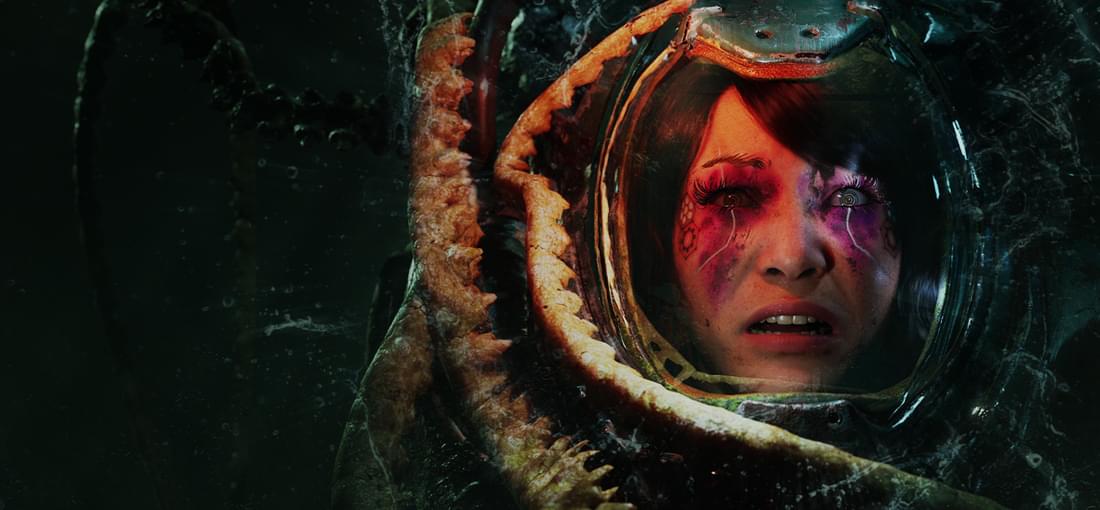
"You must watch for the parasites' presence... then act with accuracy and haste." When treasure hunters Charlie and Mac O'Bannon dock their salvage vessel to what looks like an abandoned oil rig, it seems like they have caught a break at last- but players of the first STASIS (2015) will share Mac's sentiment when the platform's name plaque comes into view: "Shit! It's a Cayne Corp rig..." Right enough, as they explore the place, bodies start piling up, increasingly few of them still having all of their parts. After the wildly imaginative Beautiful Desolation (2020), The Brotherhood have returned to a more conventional sci-fi horror setting, but that doesn't mean that the worldbuilding and narrative are any less dense and gripping. Like in BD, you get to explore the interconnected stories of several factions, further developing topics in the nexus of technology and religion. The titular concept of keeping human beings in storage remains in place, but seen through the lens of a culture that worships death about as much as Cayne does immortality. For all their differences, the atavistic tribe and the futuristic corporation are stunningly similar. An increasingly personal quest leads you through this exploration. Charlie and Mac are very well-rounded characters, and so is Moses, the AI powered toy bear of their dead daughter, Hope. Their dialogue feels very organic, plus the voice acting is outstanding. Gorgeous cinematic cutscenes make the characters come to life even more. Gameplay is the most streamlined in a The Brotherhood game yet. Gone is the tedious backtracking of BD, and mapping drones helpfully highlight POI in the environment. Puzzling is done in dedicated 2D screens, so no pixel hunting, but you still have to pay close attention to every detail- numbers, shapes, colours, little here is just decoration. Puzzles are varied and creative, but fair throughout. If you liked the first STASIS, or SOMA, or any good sci-fi adventure, this is a must-play.
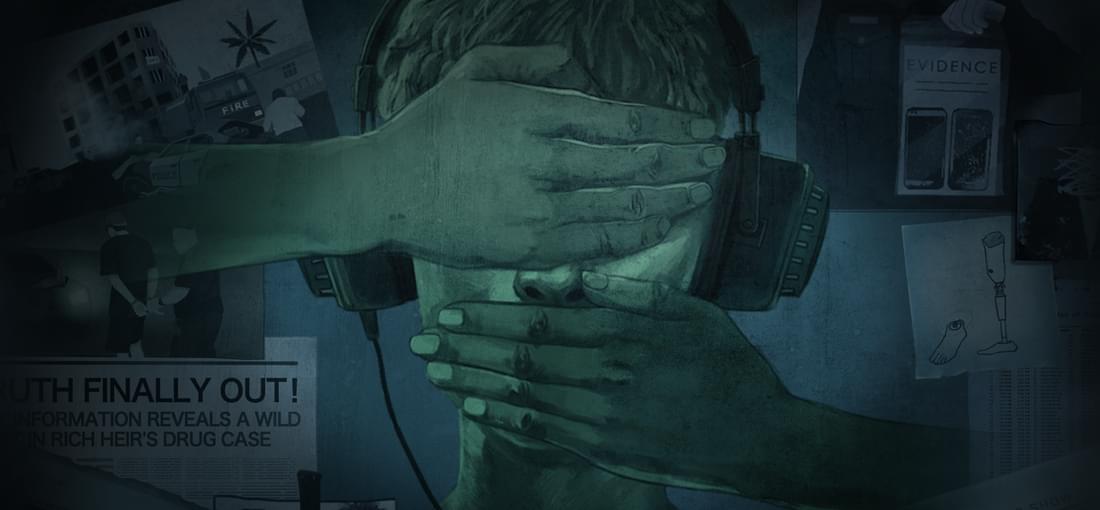
"I take it you've read the script? It has a few scenes going on at the same time, so it's kind of hard to get a handle on things on your own." In UVoC (2019) you play a detective being introduced to a new investigative tool called the Acoustic Detective System. This presents an oddly immersive way of working through surveillance recordings: You send a little detective figure across a top-down map of the surveilled building, enabling you to hear what's being said around that avatar. Media player controls at the bottom of the screen allow you to skip through the scene and add comments to timestamps. Each of the five cases lasts between three and 15 minutes, but you need to go through them multiple times to hear what everyone says and does, so the game is a few hours long. In addition to pinning a name to each of the talking circles on your map, cases have you solve mysteries like Who stole the painting or Who detonated the bomb. There's usually some false leads or other complications, so you need to listen to everything before you make up your mind. While of course the cases use similar devices like mistaken identity, items clandestinely changing hands, and everybody being on the phone to each other, each is pretty unique and cleverly written. You might wish for more cases, but the game is really well paced and working towards an overarching plot revealed in case 5 (calling it open-ended is perhaps a bit much though). The pièce de résistance is the included Lethal Script DLC, which has 14 characters, half of whom don't know they are playing the other half. It's at the limit of being too meta, but still a wild and grimly fun ride. Among surveillance based games on GOG, UVoC is the one most purely about entertainment. Sound design and voice acting are excellent, the cases are satisfying without being too hard, and with a sprinkling of horror and humour alike, you're in for a fun set of brain-teasers presented in an innovative format.
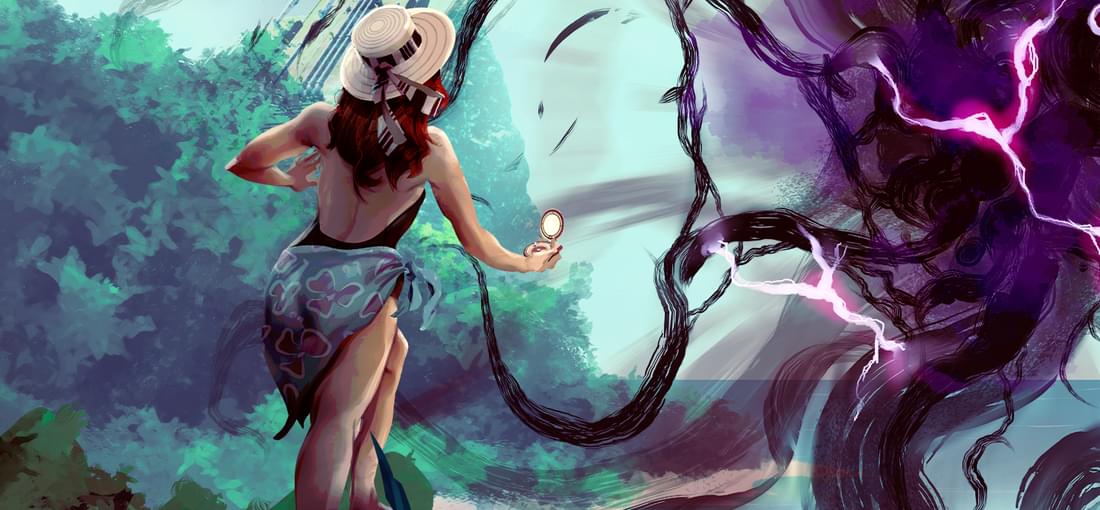
"It happened. Life happened. But I'm still a human being. I'm still me." - In What Remains of Edith Finch (2017, also on GOG), you play the titular teen returning to her abandoned family home to explore her family history through environmental narration, interior monologue, and minigames. In Lost at Sea (2021), a woman named Anna travels to a mysterious memorial island to do much the same, and by the same means. In four biomes, you work through as many stages of life, each holding four memories you need to complete. To do so, you need items which you earn in minigames spread across the surprisingly sizeable island. Completing biomes gradually unlocks access to the mountain at the centre of the isle, whence you'll be whisked away to the epilogue I quoted from above, ending this 2,5 hour game. Some aspects of it work well: The 2D art is beautiful and evocative; the voice actress somehow manages to bring even the worst platitudes to life; and some of the minigames (more rituals than actual games) succeed in translating general life experiences into compelling interactive vignettes. Still, where Edith Finch scores with quirky charm and magic realism, Lost at Sea aims to be this austere circle-of-life empathy game, resulting in a lot of pathos and commonplaces. The "youth" biome, for instance, is an absurd jumble of American school buses, with Anna proclaiming: "As a teenager you always have these romantic ideas..." So that is your essence of youth? Ouch. Like Edith's, Anna's story revolves mostly around the deaths in her family, but instead of a fatalistic hunt for the sublime, you get a game desperately tugging at your heartstrings: "I don't want you to die alone, do you hear me? [...] Mummy is here! Where are you?" Oh, and the island is mostly unattractive visually, to say nothing of the woeful soundtrack. - Tellingly, Studio Fizbin make no mention of this game on their website. There is some good material here, but on the whole this game feels empty and generic.
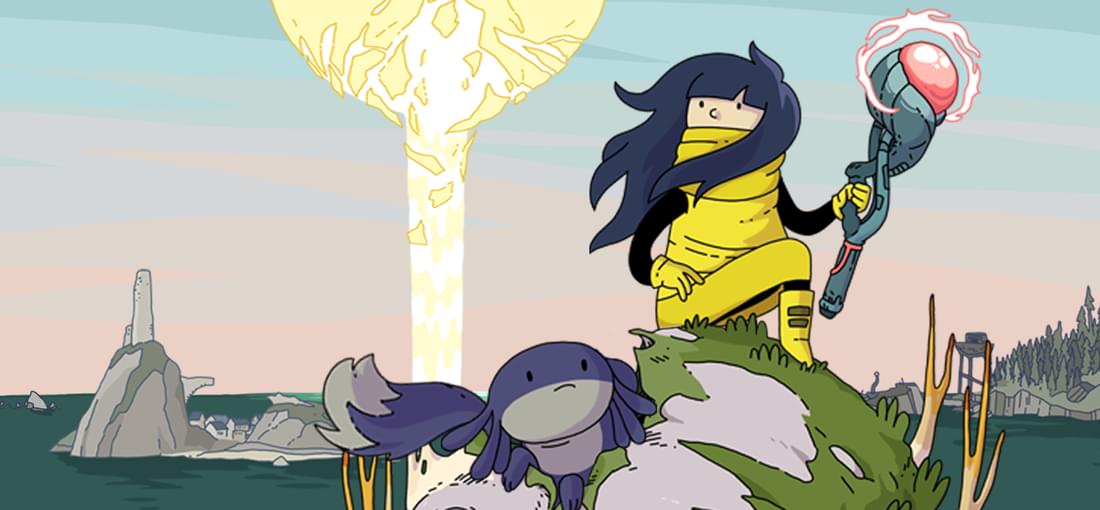
"One could sit here a while, with the right protective gear. And mourn." After their Inner World series (2013/17), Studio Fizbin again take you to a world in air trouble, and again there's a chosen one destined to keep people breathing. The similarities end there though. Even if the protagonist looks endearingly childlike as she runs, jumps and climbs through Fizbin's signature style screens- hand-drawn comic-book art with a mind-boggling level of detail-, Mo is no charming naïve like Robert: You play a battle-hardened engineer pushed to breaking point by a war she alone is equipped to fight, but cannot possibly hope to win. If anything, the audio is even better than the visuals: With the calm narration, nuanced sound design and fantastic soundtrack (one of the rare ones I downloaded and listened to separately), it feels like the game could almost work as a radio play. It's a tad sad, if understandable on economic terms, that a game made in Germany, its locations tangibly inspired by isles in the German Baltic, doesn't have German narration, especially seeing that the written German is at least as lively and idiomatic as the English. The game's emphasis on story comes with trade-offs in other places: I'm fine with the lack of actual puzzles, but the game takes control away from the player far too often. Considering this is a platformer, you rarely ever get into a proper flow; ever so often, there's some animation that needs to end, some text box that needs to disappear, before you can go on playing. Explaining the real strengths of this game is hard, given character limit: Its deft and yet almost pedantic exploration of the characters' thoughts and feelings; the unstoppable descent into darkness, even breaking the fourth wall (Spec Ops: The Line, except you're fighting spores, not people); the thought-provoking and very up to date thematic content- Minute of Islands is not easy to love, but it's definitely worth the six hours of your time.
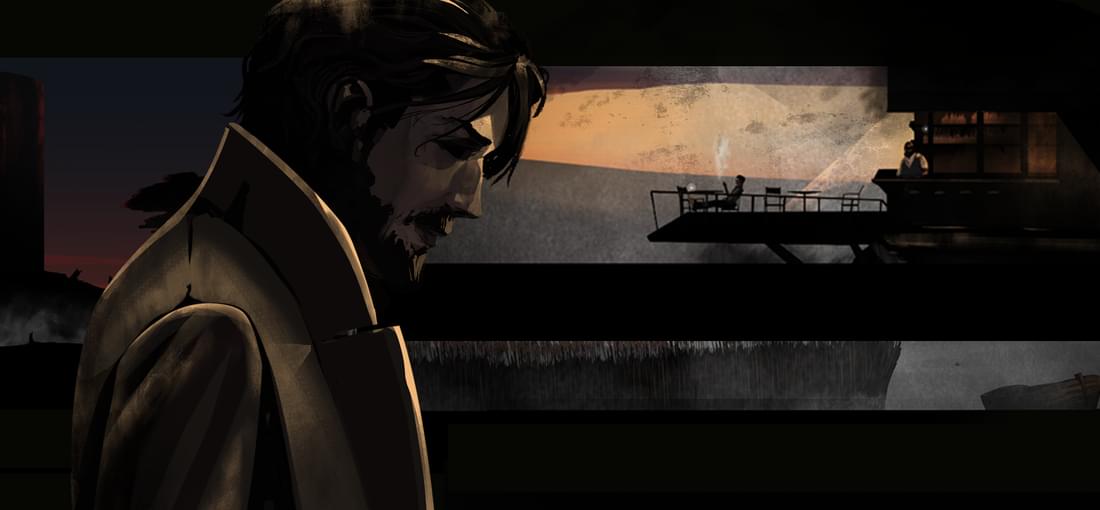
"What else can you call people who spend their lives just being... fodder. They cry, they suffer, they yearn - just to be another meal on someone else's plate." GRUNND is a captivating experience from start to finish. Its hand-drawn side-scrolling landscapes, steeped in mist and perpetual evening twilight, are beautiful enough that each random screenshot could be your next desktop background. Indoor locations range from crammed and cosy hamlet to eerie mansion to an industrial rave event. The hypnotic soundtrack and flawless voice acting contribute to the artistic unity of this 2-3 hour game. The story offers a tantalising glimpse of a world between gothic and sci-fi, remotely like Amnesia (if you include Rebirth). Don't expect definite answers though: If the game is right in calling you Hero, you live up to this title mostly because you don't know the rules of the place- which in itself is food for thought, just like the whole piece will keep you thinking long past the ending credits. In terms of narration and dialogue design, the game definitely takes a page out of Disco Elysium's book, the occasional bit of creative grammar only adding to the general feeling of strangeness. GRUNND does have some trouble managing its internal state: A gate you opened before will tell you it is closed; in dialogues, you get "tell me more" options without the topic ever coming up to begin with; talking to an NPC one time too often will reopen closed quests; the journal seems to be broken half the time, compared to the save data you find in the registry. I suggest you work each dialogue tree from top to bottom and otherwise trust your instincts. Still, this is really just a minor distraction. If you like slow, introspective games (stuff like Dear Esther, minus the obtuse prose), you want to play this. I'm looking forward to another game set in this fictional universe. Works fine on Linux using Wine/Lutris with corefonts or allfonts (not sure which) installed.
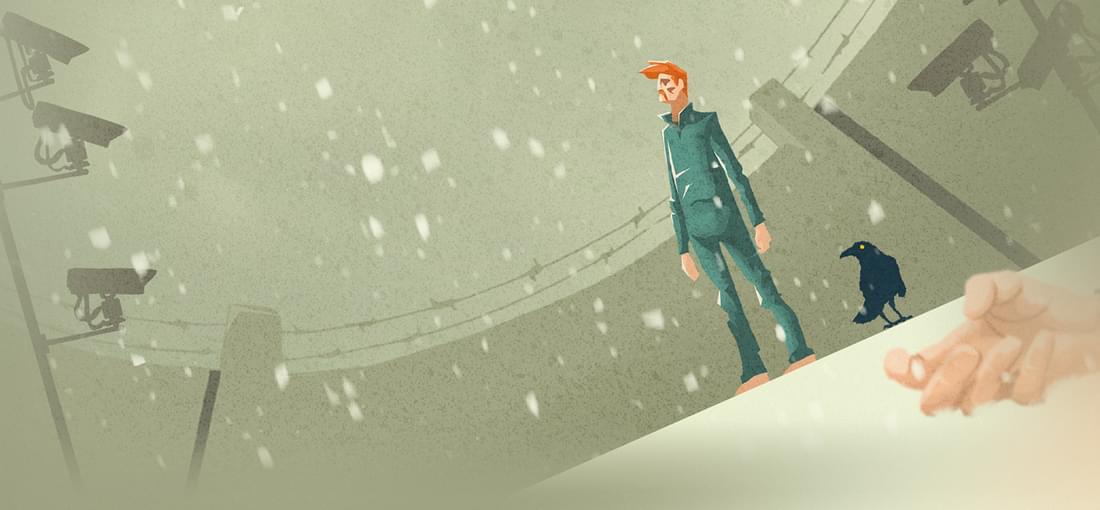
"There's always enough space for a new wall in the hearts of men." On the surface of it, this is a slow and somewhat pedantic platformer that still needs exact timing and near-pixel precision at times; a game set in a surveillance state whose history is more holes than plot and presented in often unskippable dialogues; and the humour is such that the show's basecamp is called HOT GULAG. Ouch! Yet, during my two 6-8 hour playthroughs, including 567 deaths in total, it really grew on me. For one thing, it's immensely satisfying chaining together those methodical Prince of Persia style motions to complete an arena (to say nothing of solving puzzles with your sewer-informed body odour). For another, the game is a lot more conceptually coherent than it might seem. You may roll your eyes at cliché signs pointing out the total surveillance and required behaviour, but when those same signs have an F or an arrow pointing up, you thankfully obey yourself by pushing the respective keys. The eye that always watches the protagonist is of course yours- but together with the rigid controls and the consistent breaking of the fourth wall, the game challenges your superiority from the start. On the last day "reality really becomes real," meaning you now jump through film sets instead of the places they're meant to depict. Also, the game suddenly seems to offer you a choice between paving your way with more civilian bodies, or going out of your way to spare some of them. Or maybe show runners and game devs alike just upped the stakes a bit to keep you engaged? The country has been divided long enough that it's told about in murals (walls praising walls), but somehow the hero's wife lives on the other side- or is this just the tragic backstory you expect from a nameless reality show contestant, granting you carte blance to kill your competitors? Are bad words in dialogues censored for the Wall Show or for Twitch? When have you last been actually in control?
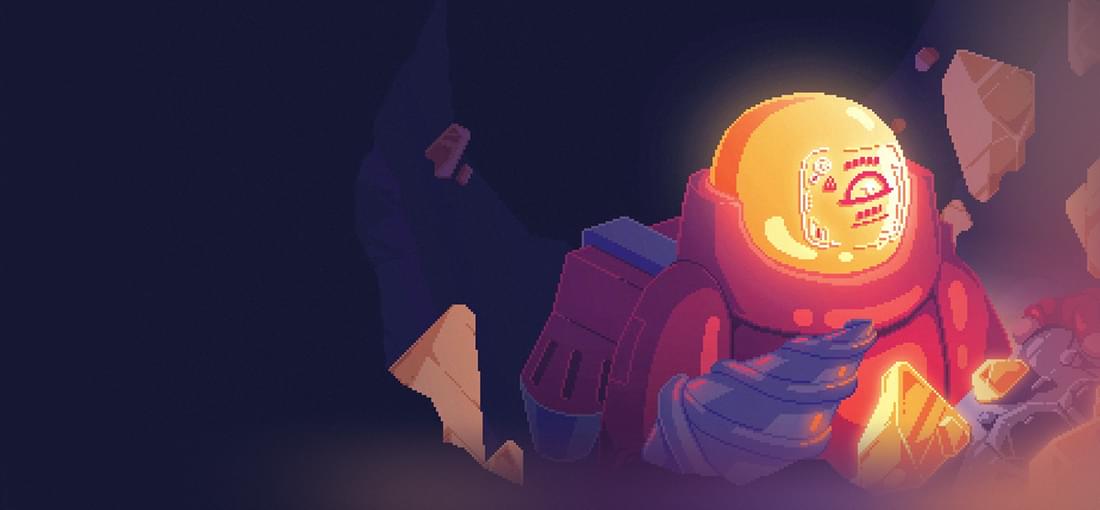
Conquer alien worlds from the safety and comfort of your own, well, dome! All alone on a distant planet, hunt for an ancient relic buried in its depths, or, for more open-ended gameplay, mine resources to send back home, and maybe even return there- provided you survive. For while you're getting comfy in your tunnels, the timer ticks down until the next and even worse wave of native creatures lays into your fragile homestead up above. So keep an eye on the clock, and strategically convert resources into upgrades to match their increasing forces. The fights are about preparation and strategy rather than reflexes. A run lasts between something like forty minutes and several hours, depending on game mode and map size. Two different domes and two keepers, each with their own upgrade trees, a choice of starting gadgets, and mineable artefacts which add unique features to your setup, make for varied runs, as do different surface environments and colour schemes. Speaking of which, both the pixel art and the music are super nice and atmospheric. Oh, and it plays fine with the keyboard, even if they recommend a gamepad. I bought this after watching (well, dozing off to) dozens of hours of gameplay online, and I still love playing it myself now that it's on GOG. Haven't felt quite as relaxed in a game since Starbound- even as the tight gameplay loop of mining and defending keeps you on your toes and offers plenty of challenge on the higher difficulties. During my first 45-minute run, the game made 80000 connection attempts to api.backendless.com, which feels a bit excessive. Other than that a great, focused, relaxing game I can see myself return to many times.
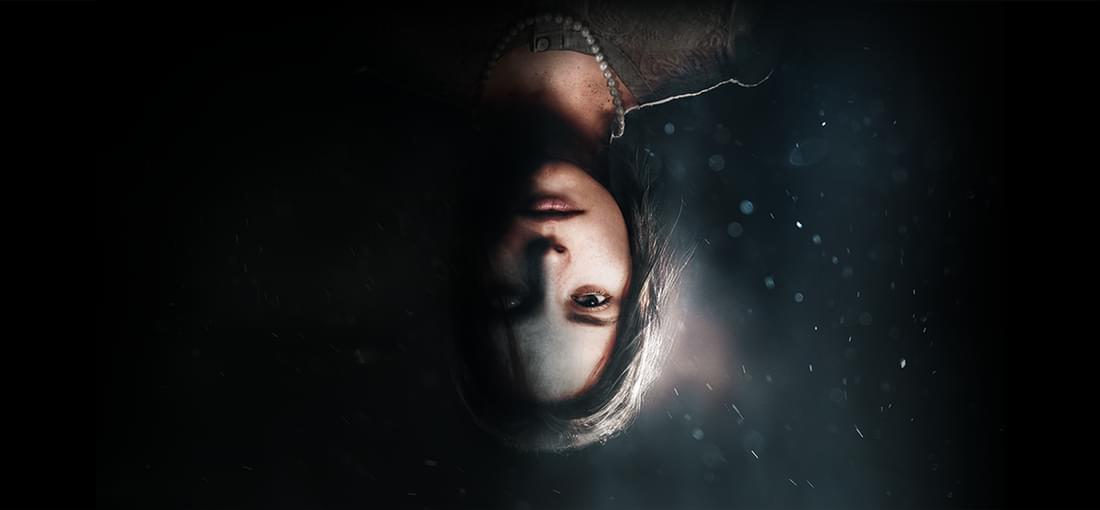
"How long will it take to get home?" The game's last seconds fade to black. Against my better judgement, I'm shaken to the bone. Giulia's vacant eyes might just haunt me forever. A familiar ping alerts me that I've unlocked a new camera skin. MID is tough to review. The premise is thrilling, and each individual element of the game is done really well. For instance, taking pictures and making prints feels great, hitting the sweet spot between simulation and story device. Also, the way the camera oscillates between truth machine and divining rod as Giulia's reality starts to come apart is real food for thought. But even here, you'll likely collect more camera attachments than you will take pictures. You get a tinted lens for snow photos- the game is set in July! Should I mention you can go on a treasure hunt using infrared film? There's a smidgeon of lore there once you make it past the first half dozen pics, but it's just so wildly implausible, and of course you need to abandon the story to scour the map for clues. Clearly, LKA strove to build and improve on the rough, almost accidental brilliance of TTOL (2016). They again tackle hard hitting topics, emphasise historical accuracy, plus MID is a polished experience, with amazing visuals and a soundtrack you really may want to buy separately. It's also trying way too hard to be a game. In the middle of everything Giulia can become a spy for the Resistenza, sneak through a Nazi bunker complex and telegraph coded massages to her fellow partisants- okay. But why are my dreams a minigame? What are those Tarot divinations meant to tell me? Near the end, Giulia uses a puppet theatre to work through her childhood memories- it's a genuine highlight aesthetically, but at this point it was hard not to think: Not another mechanic! At its best, MID is rich with harrowing intensity. All too often, however, its narrative momentum gets bogged down by the game trying to make sure people won't call it a walking sim.